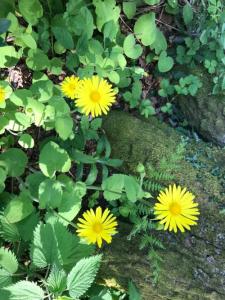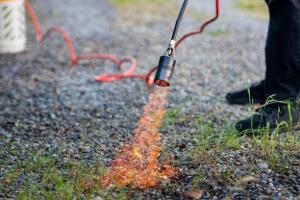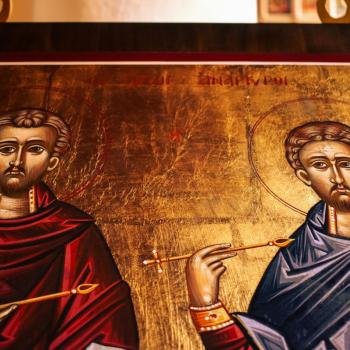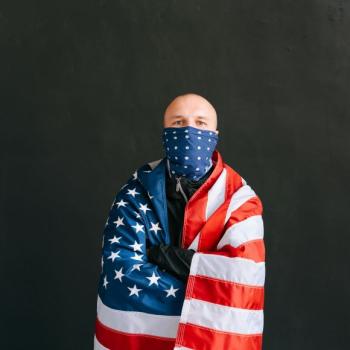Long Live the Weeds 
People have strong opinions about who belongs and who doesn’t. Emotions run high over the presence of Others. Jesus tells a story with strict instruction: “Leave the weeds alone.” My purpose here – to demonstrate the progressive values that make a space for those so often considered “weeds” in God’s garden. Is the image a weed or a flower?
We should have known better. Our narrative teaches us that we are not good with gardens. God gave us one back in the mists of civilization – an imagined paradise known as Eden. First, we ate the wrong fruit. We frolicked there, but we were sloppy, talked to a snake, got our brains crossways with suspicion and conspiracy theories, lost the entire garden. Went bankrupt. Lost it forever. Then there’s this in Isaiah. God gave us his people a garden and in exasperation finally cried, “What more could I have done with my garden then I have done?” (Isaiah 5).
Humanity couldn’t wait to get off the farm. The road from Eden to Babel was short indeed, but the scattered tragedies – the enmity between the rural and the urban lingers still. Abel and Cain was our perpetual reminders. And the ruined tower of Babel.
Destroy the Weeds?

Some Christians have a starring role in the story: “Master, do you want us to gather up the weeds in a pile and burn them?” Someone is always demanding that we get rid of the undesirables. A senator from Mississippi, back in the day, campaigned to send all African Americans back to Africa. “Put them on a boat and send them back.” Senator McCarthy crusaded to rid the country of communists. He said, “I’m going to pull the weeds out of this country. Donald Trump made a slogan for Muslim women who were elected members of Congress, “Send them back.” His followers shout, “Build the wall.” We have drifted far from President Reagan’s, “Mr. Gorbachev, tear down this wall!”
“Do you want us to gather the weeds?” This is the question that fuels all racism. Once you start pulling weeds, you are on the road to fascism. Will Campbell, assigned a topic to present at the National Conference on Religion and Race, was also required to provide a copy of his manuscript for the press and his superiors at the NCC. Will’s supervisors insisted that he delete one paragraph from his speech that they found insulting: “In our generation white children will be marched into gas chambers by dark skinned masters. If we doubt this we have only to examine the Jewish and Christian understanding fo the nature of man, and the pages of human history to see it as more than a slight possibility.” Will was expressing the universality of the human propensity for “weed pulling.” It was presumably fine to point out that African Americans were equally good with whites, but the corollary that African Americans could be equally fallen was forbidden. It is never easy to admit that we are a bunch of weedkillers.
In the United States today, angry, straight White men are mobilizing political affect to magnify the spectacle of threat facing their sexist values. Petrified by diversity they have created a fantasy of persecution and precarity. Now, affluent, middle-aged white people claim the mantle of victimization.
Leave the Weeds Alone
Of all things, Jesus says, “Leave the weeds alone.” Some folks can’t believe it. They are up in arms: “Isn’t there such a thing as right and wrong, good and evil, true and false?” “We have to take a stand, draw the line, pull some weeds.” Or they march in the streets chanting, “You will not replace us.” But the boss says, “Leave the weeds alone.”
A Weed Puller Got His Hands on Matthew’s Gospel
Let the weeds grow with the wheat and God will decide. There’s an explanation of the parable of the wheat and weeds later in Matthew. The words are on the mouth of Jesus, but this is not Jesus talking. Turns out that a weedkiller became a second-generation editor of Matthew. He’s no fan of “Leave the weeds alone.” Disturbed by Jesus’ grace toward weeds, this editor fills the parable with the flames of hell. He amended the parable and gave it back harsh judgment of hell. When weed pullers can’t get rid of the weeds in the here and now, they have invented hell as the eternal destination of all “weeds.”
Christians are always facing the tests of how to provide hospitality to strangers. And more often than not, we flunk.
Walker Percy raises this reality in Love in the Ruins:
What a bad joke: God saying, here it is, the new Eden, and it is yours, because you’re the apple of my eye, because you the lordly Westerners the fierce Caucasian-Gentile-Visigoths, believed in me and in the outlandish Jewish Event even though you were nowhere near it and had to hear the news of it from strangers. But you believed and so I gave it all to you, gave you Israel and Greece and science and art and the lordship of the earth, and finally even gave you the new world that I blessed for you. And all you had to do was pass one little test, which was surely child’s play for you because you had already passed the big one. One little test: here’s a helpless man in Africa, all you had to do is not violate him. That’s all.
One little test: you flunk!
‘God, was it always the black business, how, just as in 1883, 1783, 1683, and hasn’t it always been that ever since the first tough God-believing, Christ-haunted cunning violent rapacious Visigoth-Western-Gentile first set foot here with the first black man.
God tests his people as he tested Abraham and we keep flunking the divine exams. God keeps sending us allies and we keep mistaking them as weeds: women, gays, immigrants, persons of color. We flunk. We treat God’s gifts as weeds. We flunk.’
David Livingston Smith traces our failing ways in his powerful Less than Human: Why We Demean, Enslave, and Exterminate Others. He outlines the psychological warfare that goes on in times of war. People refer to their enemies as dung flies, lizards, and worms. Smith says, “A whole group of people is represented as less than human, as a prelude and accompaniment to extreme violence.”
We want to avert our eyes, duck our heads, and get away from such ugliness. But there is good news. We can change. Instead of doing the grunt work of pulling weeds, we can be in the cultivating of God’s Garden.
Plant these poetic words in your mind:
“What would the world be, once bereft
Of wet and of wildness? Let them be left,
O let them be left, wildness and wet;
Long live the weeds and the wilderness yet.” (Gerard Manley Hopkins)













